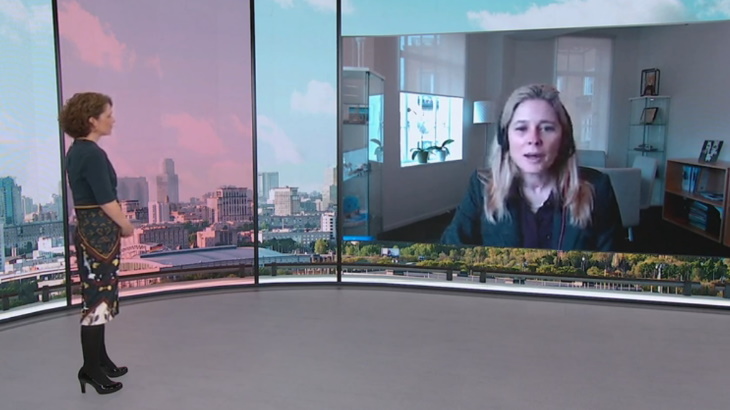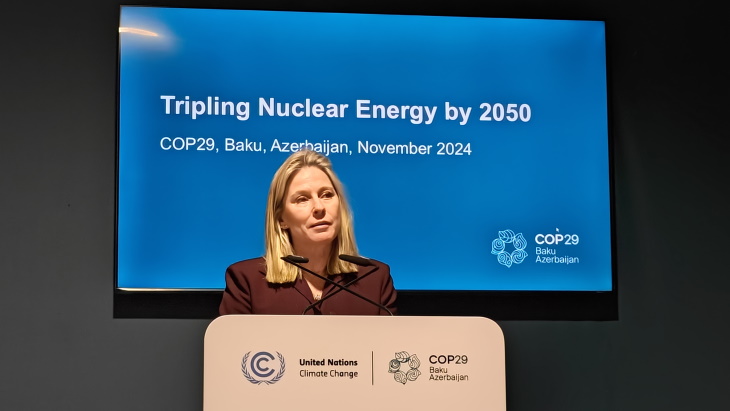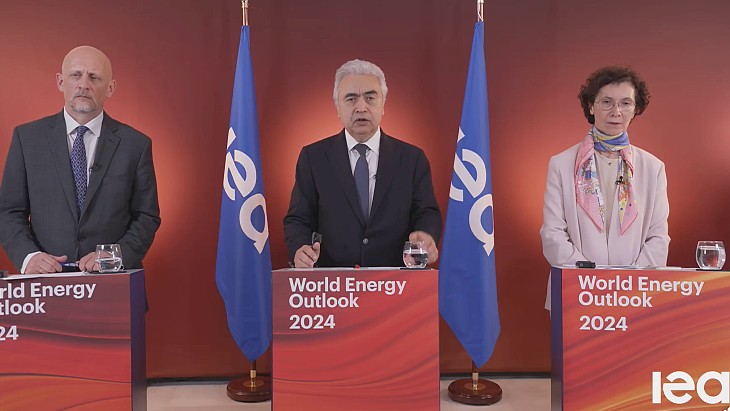Nuclear's contribution to SDGs is undervalued, says Bilbao y León

Bilbao y León was speaking at the initiative's launch event, titled Why Humanity Needs Nuclear. The discussion centred on the social, environmental and global partnerships aspects of the UN SDGs. It was moderated by Kirsty Gogan, managing partner at Lucid Catalyst and a co-founder of Terra Praxis.
"As the world becomes more organised and the number of countries that enter the middle-income bracket increases, the aspirations of individuals are also going to increase," Bilbao y León said. Education, stable jobs, better diet, better healthcare, access to cultural and leisure activities all contribute to sustainable development, she noted. However, energy - particularly nuclear energy - will be "super important".
Gogan said one of the core SGDs relates to gender equality. "But also, it's about public health and wellbeing, and again this is absolutely essential to the sustainable development goals. I think nuclear energy can contribute really meaningfully to both of those objectives."
Beyond energy supply
"Nuclear energy per se obviously contributes to having this reliable, resilient, 24/7 energy supply that we know is absolutely indispensable to power modern health infrastructure," Bilbao y León said. "We are in the middle of this very terrible COVID-19 pandemic and we are seeing how essential having that access to 24/7 electricity is to cope with this crisis.
"The fact that nuclear energy is a very low emissions technology is going to ensure that we have clean air, clean water and that we have plenty of open space to actually enjoy and have healthy communities." However, she said many people do not appreciate the "incredibly important role" nuclear science and technology plays beyond electricity supply.
Gogan agreed, saying: "It is not well-known or understood that this is about much more than just emissions-free, clean, reliable, affordable electricity."
Bilbao y León noted nuclear science and technology is used in many fields other than energy: for example, in health and medicine, agriculture, in art, in environmental protection and in archaeology. In developed countries, the use of nuclear medical procedures - from dental x-rays to the diagnosis and treatment of cancers - is commonplace. Every day, more than 15 million people around the world undergo nuclear medicine procedures that either improve their quality of life or are in fact life-saving, she said.
Job opportunities for all
"The reality is there is a tremendous need for skilled technicians, engineers, physicists, radiation experts and nuclear medicine specialists that need to be there to provide the support for the implementation of nuclear technology and science for the benefit of society," Bilbao y León said. "We are going to have a very high number of highly rewarding, well-paid, long-term jobs that are going to be within the context of nuclear science and technology."
Nuclear energy projects normally provide an "enormous catalyst" for economic and socioeconomic development in the surrounding region, she said. However, a "trickle-down in society" means such projects attract additional technologies and innovations which call for additional needs for education and support industries. "There is a myriad of very interesting, challenging and rewarding well-paid careers that are going to come next to nuclear projects."
Bilbao y León emphasised the importance of bringing women into these jobs and careers. "Unfortunately, in places where there is no easy access to affordable and reliable 24/7 electricity, often women get stuck doing some menial jobs and they are not given the opportunity to have access to the time, education and opportunities they may otherwise have had to really contribute to society as a whole. I truly think giving them access to this additional education in science, technology, maths and engineering is going to allow these women - together with the access to 24/7 electricity - to explore new opportunities to develop and contribute to society."
When Gogan asked what the motivation is for young people to choose a career in the nuclear sector, Bilbao y León said: "You have engineers who are doing exciting work and they see that, thanks to that, nuclear power plants are working reliably, safely and cost-effectively and producing electricity day-in and day-out. They are proud of this contribution they are bringing to society. And it's the same for people working in medicine. These doctors and radiation technicians are helping diagnose diseases and making people better. It's so satisfying to go home every day saying 'Today I made people's lives a little bit better'."
A recording of Why Humanity Needs Nuclear is here.

_99697.jpg)








_88592.jpg)

